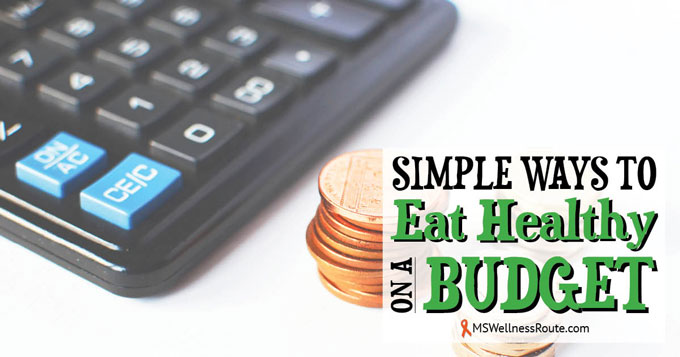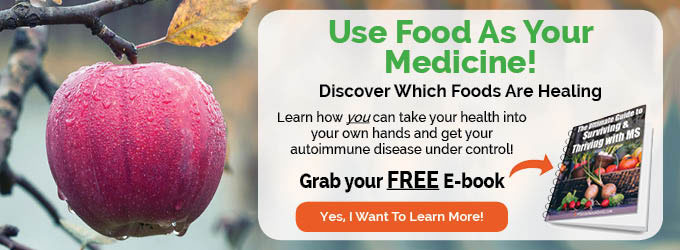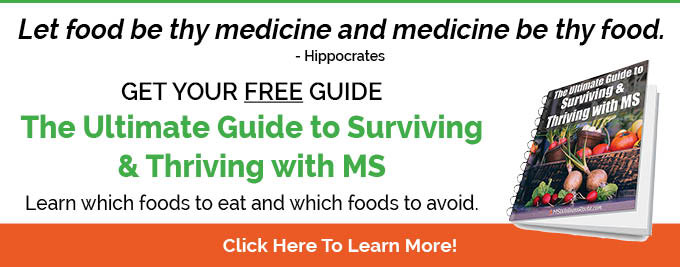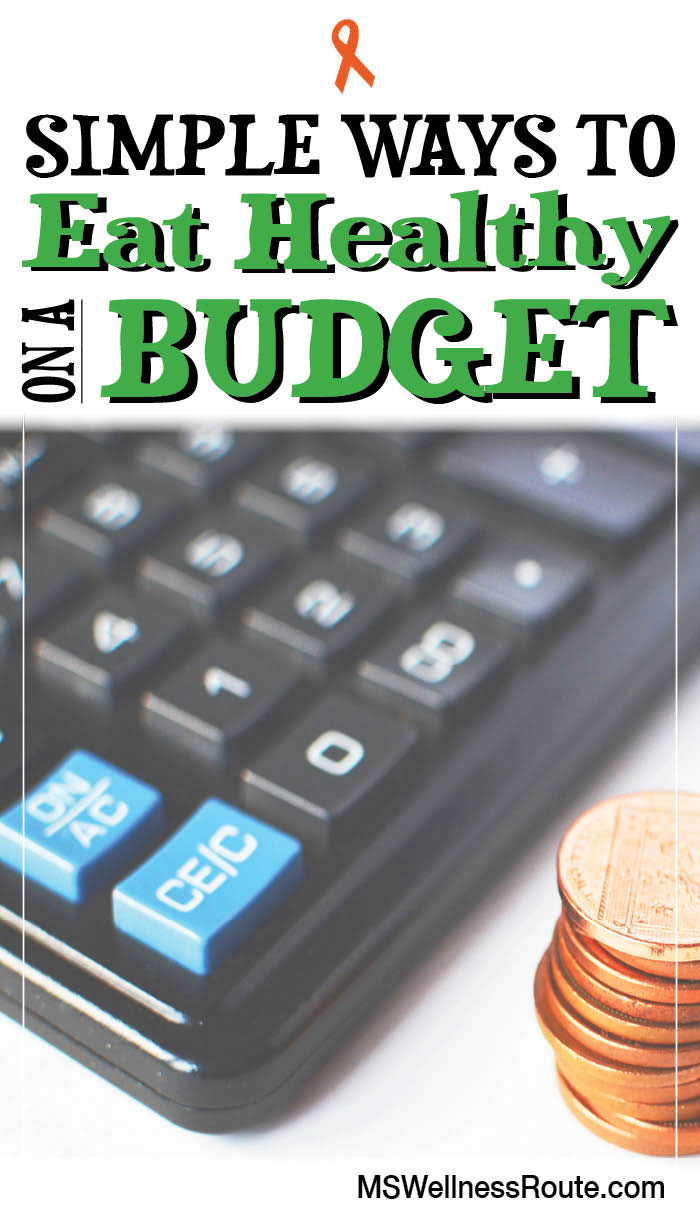Last Updated on December 6, 2023 by Cathy

Unfortunately, eating healthy means spending more money on at the grocery store. Why do we have to spend more to stay healthy? A better way of looking at it is you’ll spend less money at the doctor’s office. In order to get your body to heal, you’ll need lots of healthy foods. Starting with vegetables for vitamins and minerals to water to stay hydrated. Here are some simple tricks to help you eat healthy on a budget.
Buy Real Food
I hear it over and over “I can’t afford to eat healthy” but processed foods can also be expensive. Yes, they are more convenient but you pay for it and how often does that small bag of chips really fill you up? Real food is more nutritious and fills you up longer so you aren’t needing to eat again within an hour. (Saving you money.)
- Fruit and Vegetables. Buy in-season fruit and vegetables, grow your own garden, or visit a farmers market. In season produce tastes better and it’s not as expensive. Buy berries in the spring, zucchini in the summer, apples and root vegetables in the fall.
- Proteins. Grass-fed beef, wild-caught fish, and pasture-raised poultry can be expensive. But there are tricks to getting them at discounted prices too. More and more stores are selling organic foods. Check your local discount stores like Target, Walmart, Costco, or Winco. Also watch for when the meats are on clearance and stock up.
- Pantry items. Did you know stores usually rotate sale prices every 5-6 weeks? When your favorite item like coconut oil goes on sale, buy enough to last you until the next sale date.
Check out How to Save on Organic Produce to avoid pesticides.
Or How to Save Money on Natural Foods.
Buy Cheap Proteins
Check the frozen section, not all stores sell frozen organic meats but it’s worth a look. Organ meats are a great way of buying protein at a very low price. If you can’t stand the taste use half regular meat mixed with half organ meats.
Grocery stores like to clear meats on Thursday mornings getting ready for the weekend. I like to be there bright and early on Thursday to find the best deals. Stores vary so pay attention to clearance prices, or ask your butcher.
Buy Frozen Fruits & Veggies
Fruits and vegetables can get very expensive especially when they’re not in season. Buying frozen is cheaper than buying fresh when they aren’t in season. Buying them from freezer section has many benefits including:
Saves money. Like pantry items these go on sale every 4-5 weeks. And they usually cost a fraction of what fresh produce cost. When they do go on sale it’s a great time to stock up until the next sale date. Frozen berries are excellent in a smoothie or with coconut whipped cream.
Saves time. Frozen organic produce are pre-washed and/or pre-cut saving you time in preparation.
Nutrient dense. Frozen produce is usually picked and immediately frozen. This means you’re receiving them at their peak of nutrition. Whereas fresh produce isn’t quite ripe to allow them to continue to ripen on the truck and store shelves. Which often times means frozen produce have more nutrients than fresh produce.
Store Brands
Fortunately, organic is growing in popularity which means more competition. No need to run to only Whole Foods for your organic groceries. Many grocery stores are now selling organic products with their names on it. It saves them money on packing and advertising which is then passed down to you as the consumer.
- 365 Everyday Value at Whole Foods
- Great Value Organic at Walmart
- Simple Truth at Fred Meyer/Kroger
- Simply Balanced at Target
- Wild Harvest at Albertsons
I basically shop at one grocery store then occasionally stop at a different store. This not only saves me money on food but saves me money on gasoline from driving all over town.
Shop the bulk bins
Nearly all grocery stores have bulk bins where you can find flours, nuts, seeds, or, spices. Most of the times these bulk items are a lot cheaper than the packaged item. They’re also handy when you’re only needing a small amount. Make sure you compare price per pound to make sure you’re truly getting a good deal.
Plan meals around sales
When your local grocery store sends out their weekly circular see what’s on sale that week. Consider your weekly meals on what’s on sale for that week. If cauliflower is now sale make some stir fry with “rice” or cauliflower fried rice. You can get adventurous and try making cauliflower crust pizza. Try some new recipes with what’s on sale, get creative and try something new.
Buy Online
News reports claim buying online is becoming more popular. This even includes online shopping for groceries. I guess that’s why Amazon, the online giant, bought out Whole Foods. I live in a small town and buying organic groceries isn’t an option so I either drive to the next town or buy online. I’ve been buying many of my food options online for many years. I love the convenience of the groceries showing up on my doorstep (minus perishables).
There are many different online organic choices, some even include deals on shipping. It not only saves you time but saves you from impulse buying. Here is a list of some of my favorite online stores.
- Amazon. They are the largest online retailer today. They’ve improved their organic section, especially since taking over Whole Foods. Amazon Prime members also get free shipping on qualified products.
- Vitacost. They sell more than just vitamins and supplements. They also sell a nice assortment of organic foods.
Local Grocery Stores. Many local grocery stores are now offering online ordering. They even include same-day pickup or home delivery. Including Costco, Fred Meyer, Walmart, and even Albertsons. You order the same items online you would normally buy in the store. When checking out you choose delivery or pickup. - Community Supported Agriculture (CSA). When you join a CSA you get a share of the farmer’s crop, depending on the season. For around $25 a week, you’ll get a box of locally-grown produce. Sometimes you’ll get something you’ve never had before, it’s a great way for you to try something new. You can find a CSA in your by checking Local Harvest (.org).
Avoid Impulse Buying
Always plan and bring a grocery list. I can always tell if we’re going to spend too much at the grocery store within the first few minutes. My husband is an impulse buyer and he starts grabbing stuff the second we walk through the doors. Granted he has gotten a lot better but I still avoid going shopping with him as much as possible. (I don’t like spending money.)
Grocery shopping always seems to be a budget buster in most families. Here are a few tips I’ve learned to stay on budget and keep from impulse buying.
- Make a list and stick to it. Plan your meals for the next one or two weeks and make a list of items you’ll need. Buy only what’s on your list. I like to keep a whiteboard on my refrigerator so we can write down any item we’ll need on our next trip to the store.
- Eat before going shopping. I know you’ve heard this before but it needs repeating. Everything looks good when you’re starving especially processed quick foods.
- Shop alone if possible. Leave the kids and/or spouse at home, this helps prevent impulse buying. Even my “impulse buying” husband doesn’t impulse buy when he shops alone.
- Shop with cash. Shopping with plastic instead of cash people end up spending more than they wanted to. When using cash you’re more likely to keep track of how much you’re spending.
- Use a tally counter. I tried using a calculator to total up my tally but then it would mess up and I’d lose track. Then I discovered a tally counter app. It’s so easy and I never lose track (unless I forget to add an item). It’s a very convenient and easy way of adding up what you’ve spent so far. Just average up to the next dollar when adding change (that helps with adding in tax).
Sign up for store cards
Grocery stores want you to shop at their store so many of them offer customer discount cards. With these cards, you can get special offers like coupons or gift certificates. If they also have a fuel station you can also get discounted prices on fuel.
They do keep track of what you buy but they give you coupons for items you’d be buying anyway. To me that’s a win-win situation, anytime I can save money – I’m happy.
Coupons
There are not always coupons for organic products but that doesn’t mean they aren’t out there. Check out your favorite brand and see if they offer coupons from their websites. There are also coupon blogs that give tips on finding organic coupons. Check out All Natural Savings.
Sometimes manufacturers will include coupons in the store itself. Watch for displays on the store aisles or on the product you’re purchasing. Sometimes there will be a coupon on the inside of the package for you to use next time. Even health-focused magazines will have coupons in them.
Don’t forget to download your favorite store’s app. Many stores will include digital coupons. They’re free and very easy to use, no clipping needed. Some stores include monthly store coupon booklets. You can usually find these online or near the entrance to the store.
The Ultimate Guide to Surviving & Thriving with MS
Unlock the key to a vibrant life with multiple sclerosis by subscribing to my newsletter and gaining exclusive access to ‘The Ultimate Guide to Surviving & Thriving with MS.’ It’s packed with valuable information on natural management strategies and clean health lifestyle practices that you can start today.
Simple Ways to Eat Healthy On a Budget








